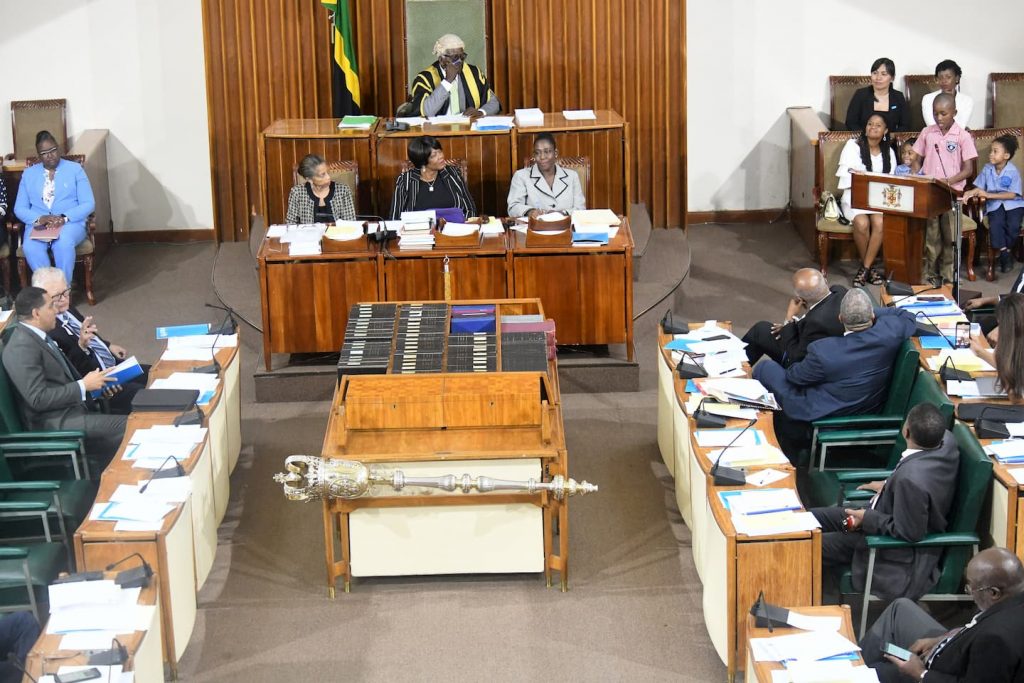It has been hard to follow the proceedings of the House of Representatives recently. The order of business has moved from rigidity to unpredictable chaos, and we are forced to wonder if this reflects a blundering mindset of those in charge. This, after all, is supposed to be the highest court of the land.
First, and yes, foremost, the Tuesday sittings never start on time despite the repeated nostrums of the Speaker and House Leader. Last week, scores of children and guests from abroad, were summoned for a 1:00 p.m. start, for which ample notice had been given. As happens chronically, opening prayers were not said until almost an hour later, giving everyone, especially the impressionable youngsters, a powerful lesson of contempt for punctuality and disrespect for order. Was there even a perfunctory apology?
The excuse for lateness is usually that there is no quorum or that the start must await the arrival of the prime minister. Neither is acceptable. It is disgraceful that not even the 16 out of 63 members required to begin, cannot assemble at the required hour. And it is part of the standard of leadership expected of a prime minister that he too, except for very good cause, will abide by these simple, but important rules.
Of late, Mr Samuda has been directing deviation from the usual cadence of the Order Paper by allowing members participating in the annual constituency debate to present at the start, before any other business, so that their followers, bussed in from far off places can, having waited so long, be relieved to return to their places of abode.
As sympathetic as this measure is intended to be, it throws out the whole rhythm of the House. Statements by ministers followed by the responses and questions from the Opposition, come late in the proceedings and Question Time, of the prime minister, other ministers and generally, have been relegated to late evening, after the daily news cycle, and often not taken at all. Bills take longer than they should to be debated because of the clutter. Continuous postponement is the fate of Private Members Motions which are obviously considered a nuisance to be ignored by the government. This is chacka-chacka behaviour.
The remedy for all this is to convene earlier on Tuesdays or to arrange an additional sitting each week. To his credit, the House Leader says he is trying to convene the Standing Orders Committee – which nobody is sure exists because it has not met in living memory – to mandate a Tuesday 10:00 am start in an effort to clear the backlog of business. He should persist despite the objections of some lazy members who seem to have a problem for every solution, which involves more work and time.
Since the same House Leader has signalled that the Christmas break will be taken on December 10, little improvement is likely before the new year when there is the probability that electoral concerns will, once more, blunt parliamentary efficiency.
Another unnecessary challenge is the lateness of the agenda for each sitting. No more than 24 hours, and often less, notice is ever given thus compressing the time for adequate preparation. So, forget research. Ministers mostly read canned speeches with diction and fluency which betray unfamiliarity with the text. Responses are off-the-cuff. Apart from emergencies, the schedule of each sitting ought to be planned and announced a week in advance, not least, so that the public may plan attendance.

Happy flexibility and the injection of some fresh energy in a Chamber which lurches between the childish, the geriatric and plain boredom, was allowed last week when, under the auspices of UNICEF, children came to plead to be kept safe to grow in peace. It was instructive to notice how that presentation helped members to embrace their cause in a united fashion. Other interest groups ought to be encouraged to bring a variety of urgent national concerns to the Bar of Parliament – say once a month.
Listening to and engaging with ordinary citizens, tapping their wisdom, should not only be the remit of parliamentary committees. However, deepening the democracy like that will take more effort and time than we have expected of our representatives up to now.







